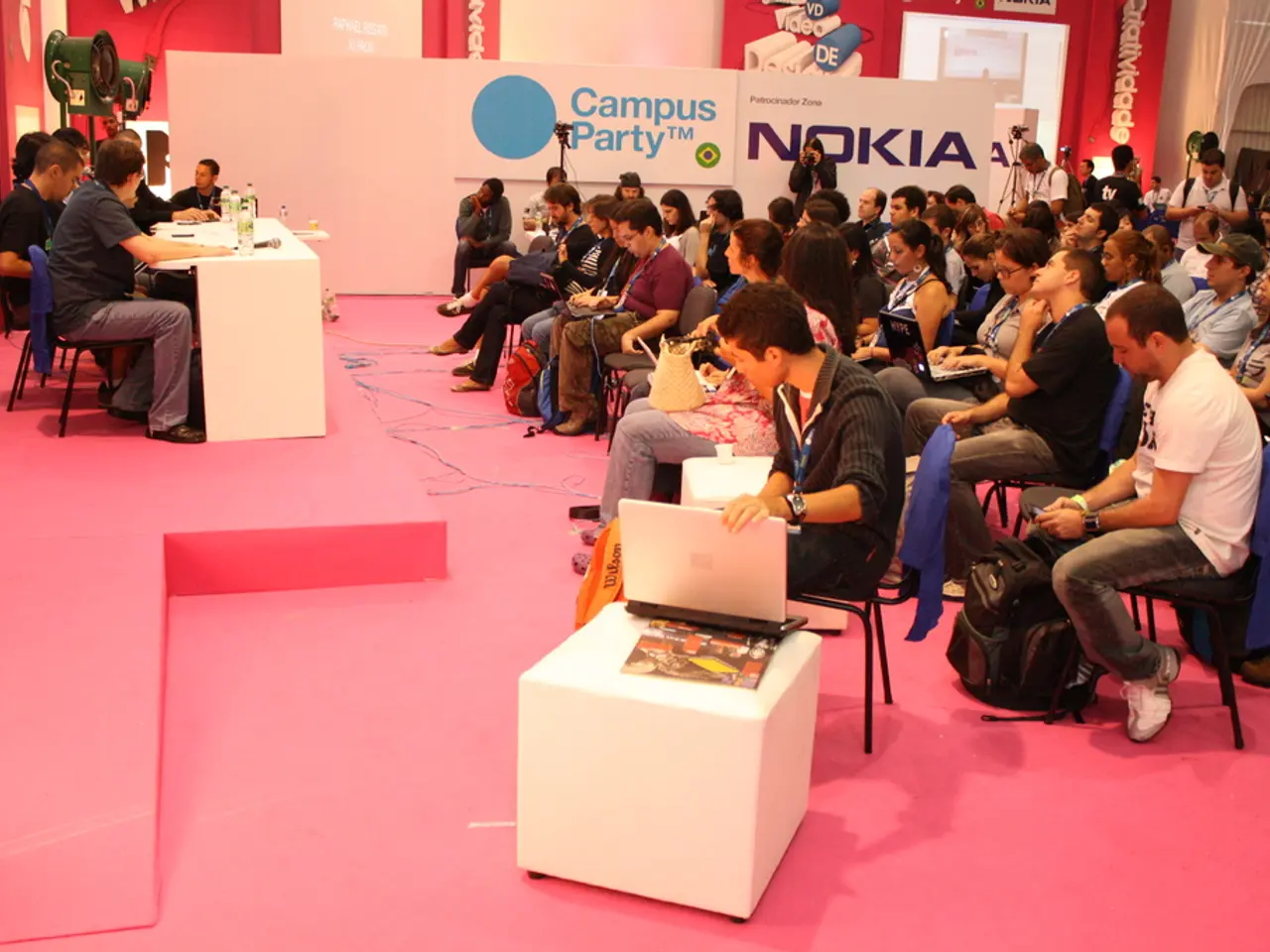Affordable Options Abound - Representatives from Construction, Real Estate, and Security Industries
In a recent study by Twinby and hh.ru, it has been revealed that user interaction with content on social media in Russia is significantly influenced by factors such as gender, location, and profession.
The study found that gender differences play a crucial role in shaping the nature of content engagement and exposure to negative interactions. Women, for instance, are more likely to engage with appearance-related content and social comparison, often involving idealized beauty standards. This leads to more appearance-focused self-presentation and comparisons. On the other hand, women in professional and political contexts face more gendered and uncivil language online, including personal attacks and threats targeting their identities.
Regarding location, the study suggests that social media platforms can bridge geographic barriers, connecting individuals across distances for networking and information sharing. However, disparities in digital access and demographics can influence who benefits from these connections, with older populations less active on platforms like Twitter.
Profession also shapes social media use, primarily in terms of networking and self-promotion behaviors. Virtual networking on platforms like Twitter is useful for building professional connections, especially when geographical barriers exist. However, there are gender gaps in usage patterns and behaviors of self-promotion that affect professional visibility.
The Russian internet advertising market for small and medium-sized businesses grew by nearly 25% in 2024. "Yandex Direct" managed to capture and maintain a significant share of this market, accounting for 35% of all advertising budgets. Interestingly, residents of Irkutsk, Rostov, and Samara regions were found to be the most supportive on social media.
The study also delved into the reasons behind the use of the like function on social media. 44% of respondents see a like as a way to mark content they like, while others use it more often as a sign of support or politeness. Women, on average, are more focused on social relationships and are more sensitive to feedback, which could explain why they express emotions online more often and value activity and likes on social media.
Attention to likes on social media can indicate a desire for acceptance, according to Laris Karavayeva, chief psychologist at Twinby service. However, indifference to likes could signal either mature self-esteem or emotional burnout. The study found that 8% of respondents admitted to liking posts automatically.
From September 1, amendments to the Code of Administrative Offenses will come into force, penalizing internet users for searching for prohibited materials. Violators of the advertising law face fines, with enforcement entrusted to the Federal Antimonopoly Service of Russia. A similar ban is already in effect for placing ads on foreign agent resources. From September 1, 2025, amendments come into force prohibiting the dissemination of advertising on banned Russian resources, including social networks.
A third of those surveyed only like posts from friends and acquaintances. Those in construction, real estate, and security show almost no external activity on social media, suggesting a more professional and less personal approach to social media use in these fields.
In summary, the study highlights the complex interplay of gender, location, and profession in shaping social media behaviors. Women face more targeted incivility and less self-promotion in professional realms, while location influences access and the reach of social media content. Profession shapes social media use in terms of networking and promotion, though gender gaps persist within these professional uses. These factors intersect and contribute to heterogeneous social media behaviors across populations.
- The study reveals that women in the field of education-and-self-development and entertainment are more likely to engage with content that emphasizes social relationships and are more sensitive to feedback, valuing activity and likes on social media.
- The Russian advertising market for small and medium-sized businesses in the sector of business and finance, particularly Twitter, experienced a growth of nearly 25% in 2024, with Yandex Direct capturing a significant share of this market.
- The study found that general-news platforms serve as a bridge for geographic barriers, connecting individuals for networking and information sharing, but disparities in digital access and demographics can influence who benefits from these connections.




